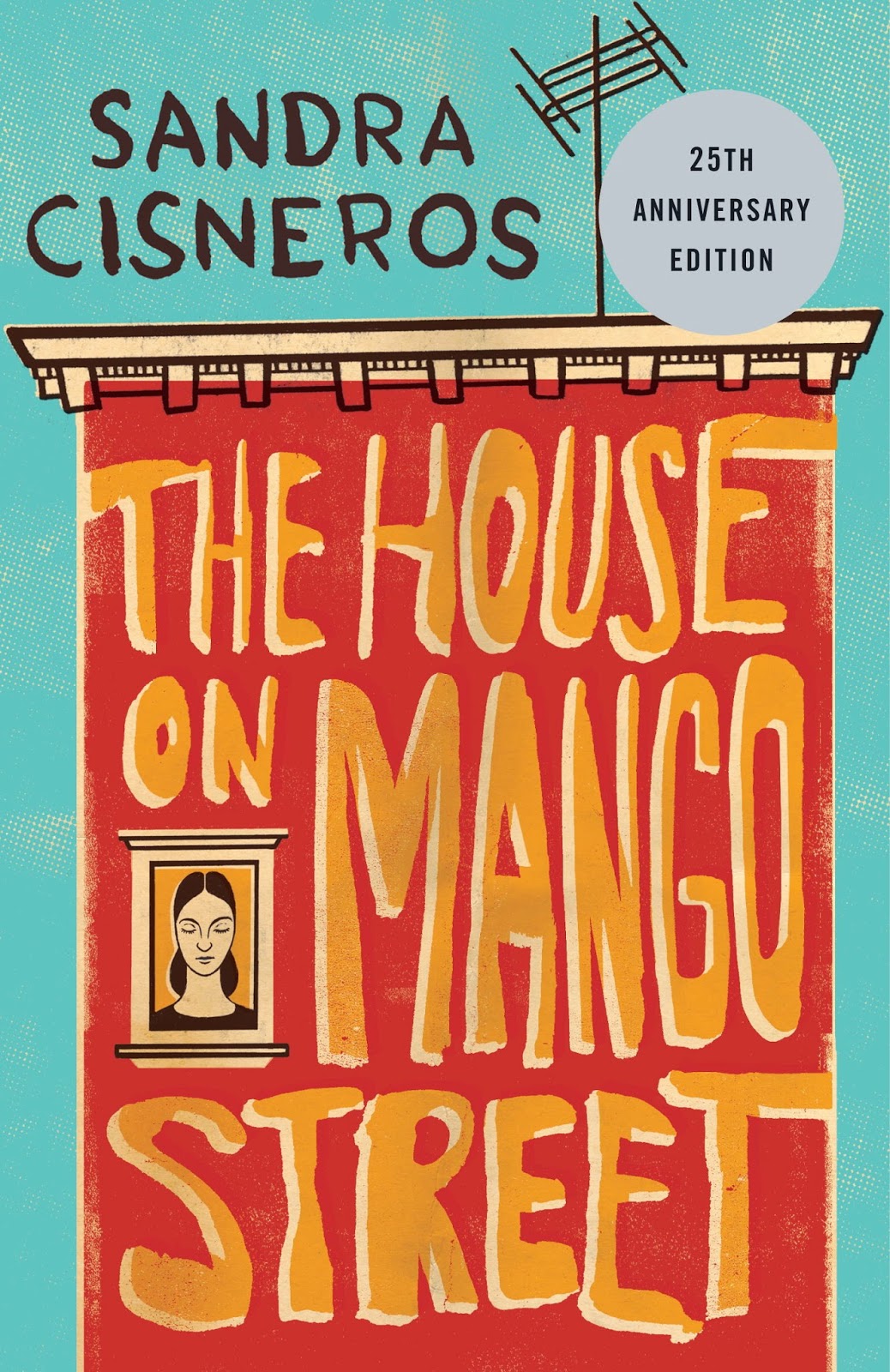The House on Mango Street Review
Friday, September 12, 2014I feel like September is going by so quickly, we're already in the second week! Before we know it, October will be here, and so I have to make the most out of time and read ;) For my literature class this semester I had to pick up The House on Mango Street by Sandra Cisneros, and although I've read it before in the past I was excited to re-read it once more and really give my opinions and thoughts on it. I'm sure the majority of people have heard of this book or probably been required to read it during middle or high school; I know I read it once in middle school and then picked it up once more for a previous class a couple of semesters ago. Finishing it this time around, I can say that this very small book has become a classic in my bookshelf and something that I can just easily pick up when I'm feeling nostalgic or want to connect to flashbacks of a similar life that Esperanza went through. I have to say that I really enjoyed this book primarily because I can relate immsenly to the various stories presented.
Before I get ahead of myself, if you have no idea what this book is about then let me give a brief synopsis. The House on Mango Street is a compilation of numerous vignettes that follow a young girl named, Esperanza Cordero, of Mexican-American (Chicano) descent who moves into a house on Mango Street* with her entire family. Her neighborhood is primarily inhabited by other Latino's whose descriptions are vibrant and full of life, but exude dark undertones that seem to linger in the background of their everyday lives. Esperanza's neighborhood is one that is described where old tenants are moving out with the influx of Hispanic families moving in and one where passerby's roll up their windows and lock their doors. Looking from the inside out, many assumptions are made in regards to the characters appearance and demeanor, primarily based off of their culture and language, but hearing Esperanza's narration of her neighbors and friends demonstrates to readers how much struggle and heartache these people go through to get by.
I gave The House on Mango Street 5 stars on Goodreads because the storytelling of the people on Mango Street and the immigration to the United States is something I can relate with on a personal account. Esperanza's love for books is something that I was in awe with as well when I was very young and discovered my school's library. Even with English not being my first language, I learned to appreciate the words written on all those storybook pages full of adventure, love, struggle, and perseverance. Sandra Cisneros writing is beautiful as well, she created a story full of words that just flow and fit together like puzzle pieces, her descriptions were so precise to the feelings and emotions that pertained to the stories that I found myself getting caught up and following along past the words written on the page, transcending furthermore into Mango Street and my own past. I liked that the writing was so simple as this and its concise narration hit home to the culture and manner of Spanish culture. In my Goodreads review I wrote that Cisneros writing reminded me of the iceberg theory that is used to describe Hemingway's writing, where on the surface the words and plot seem very standard and obvious, but underneath have an enormous amount of depth. There aren't many books that I've picked up that describe the Latino culture in such a raw and open manner, and even with the short amount of pages that make this book as a whole, I savored what little was given as much as I could. It's not surprising then that I had various tabs jutting out from the sides with some of my favorite quotes and passages. One of these I thought really summed up the overall tone and struggle with which not only Esperanza's family but other Latino families go through. It might seem like nothing or it might seem very ordinary but to me it's exactly right,
"I knew then I had to have a house. A real house. One I could point to. But this isn't it. The house on Mango Street isn't it. For the time being. Mama says. Temporary, says Papa. But I know how those things go."Experiencing this coming of age story through Esperanza, and obtaining an inside look into her hopes and dreams, and some of those residing on Mango Street is something you really have to try for yourself. This story touches upon the difficulty of finding a way to fit in, deals with death and isolation, the transition from a young lady to a woman and realizing what that change brings with it. But most significantly, all these various snap shots of life through the eyes of a young Latina girl trying to find that balance between her Spanish culture and English-speaking world. I'm really happy to finally have a copy of this for my bookshelf-and for only $5 on eBay! If you've read this or have a different viewpoint on your reading experience, let me know, I would love to see what others think!
*Quick reference, Mango Street isn't actually the name of the real street that the premise of this book surrounds, a Mango Avenue does exist in Chicago but it's actually Campbell Street that Sandra Cisneros based it off along with other neighborhoods and locations she came across through her life
-Alex





0 comments